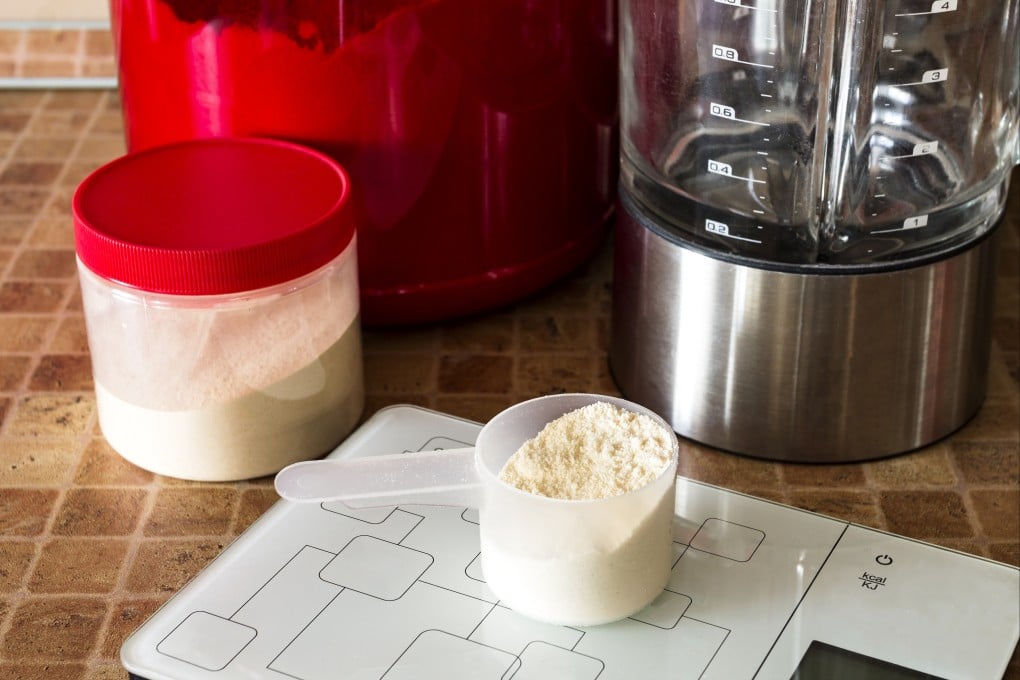A supplement before exercise? Experts weigh in on pre-workout powders – and stress the value of a healthy diet and sleep routine
- Fitness influencers are pushing pre-workout powders, saying they give an edge in performance, but experts are divided
- Some say they are unnecessary and potentially harmful, others believe they can help recovery time and ease fatigue

Pre-workout powders are booming on social media. From influencer-promoted brands to viral dry-scooping techniques and more, the powdery supplements that gym-goers mix into their drinks are everywhere online – but are they necessary?
Google Trends shows a spike in searches for pre-workout powders in 2021 compared to previous years and the hashtag #preworkoutpowder has been used more than 38 million times on TikTok.
“Everyone’s looking for that next edge to help them in their fitness … and (pre-workout powders) are just one of the things that are marketed to speed up that process a little bit more,” says Jonathan Purtell, a registered dietitian with Lenox Hill Hospital in New York.
“With the rise of Instagram and fitness influencers, and these companies taking advantage of those influencers, we’re seeing that these pre-workouts are being heavily endorsed all the time.”

But are these supplements just a heavily marketed fad or serious fitness fuel? We had experts weigh in on whether it’s necessary to start your routine with them.